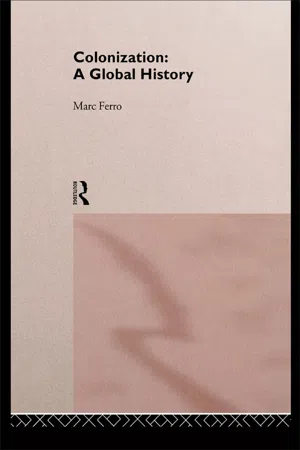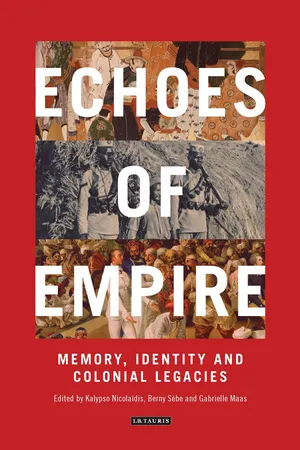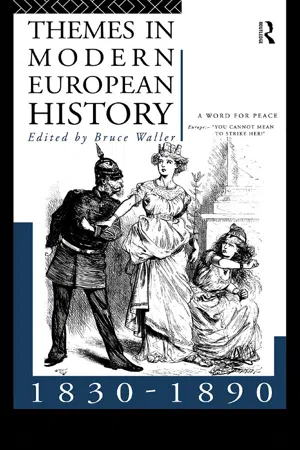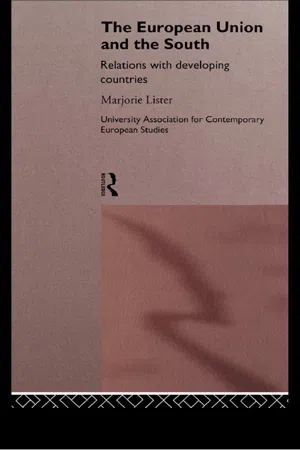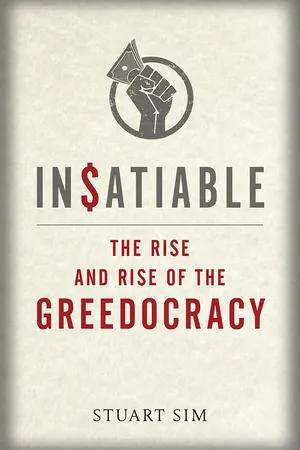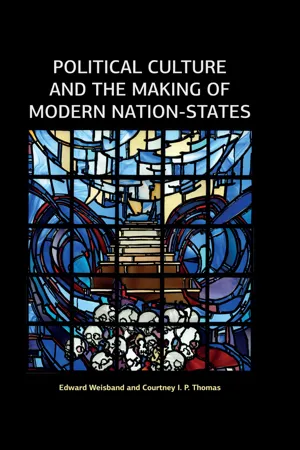History
European Colonization
European colonization refers to the period when European powers established control over territories outside of Europe, primarily during the 15th to 19th centuries. This expansion was driven by economic, political, and religious motives, leading to the establishment of colonies in the Americas, Africa, Asia, and Oceania. The impact of European colonization was profound, shaping the cultures, economies, and political landscapes of the colonized regions.
Written by Perlego with AI-assistance
Related key terms
9 Key excerpts on "European Colonization"
- eBook - ePub
Cultural Anthropology
Global Forces, Local Lives
- Jack David Eller(Author)
- 2020(Publication Date)
- Routledge(Publisher)
The impact on the local societies too was complex and contradictory: sometimes it appeared to freeze their “traditional” cultures at a particular moment in time, while also altering those traditions or destroying them and generating new ones. Even before modern colonialism, it would be false to insist that indigenous societies were static or totally isolated. However, by the year 1500 we see the seeds of contemporary globalization, in which distant societies would become enmeshed economically, politically, technologically, and “culturally.” Societies were increasingly integrated into national, regional, and ultimately global systems in which the events, decisions, and policies of any one society, state, or region affected other and perhaps all societies. In fact, that wider social context became part of their contemporary culture. It is impossible to understand the modern world apart from colonialism. ETHNOGRAPHIC ARCHIVE – CHAPTER 13 THE ANTHROPOLOGY OF COLONIALISM In 1492, when Christopher Columbus and his expedition made landfall in the “New World,” a world-historical expansion and acceleration of cultural forces was already underway that would come to be known as colonialism. Colonialism, as a practice of occupation and exploitation of foreign territories within the political economy of Europe, and eventually as a global pursuit of empire, was to have unparalleled effects. Yet, founding and controlling colonies was not new at all; colonies are not even unique to humans. The word “colony” (Latin colonia) derives from colonus (farmer), which further derives from colere (to cultivate, also related to the root of our term “culture”). A colony is a segment of a population that moves into and occupies a new territory; as such, there can be not only colonies of humans but of animals, trees, or bacteria - eBook - ePub
Colonization
A Global History
- Marc Ferro(Author)
- 2005(Publication Date)
- Routledge(Publisher)
1 COLONIZATION OR IMPERIALISM
Gold or Christ
Colonization is associated with the occupation of a foreign land, with its being brought under cultivation, with the settlement of colonists. If this definition of the term “colony” is used, the phenomenon dates from the Greek period. Likewise we speak of Athenian, then Roman “imperialism”. Has there been any change in the meaning of this term?Western historical tradition, however, places the date of the colonial phenomenon at the time of the Great Discoveries. For example, according to the Histoire de la France coloniale, published in 1991, the “real colonial adventure” began with the explorers of the fifteenth century, when Jean de Béthencourt received from Henry IV, King of Castile, the Canary Islands as fief. It goes on to say that the exploration and discoveries in America took place later: the Bay of Rio de Janeiro and the Florida coast were occupied towards the middle of the sixteenth century, prior to any interest being directed towards Canada, during the reign of Henri IV and thanks to Champlain. This way of looking at colonization is equally valid for Portugal, Spain and England. That is, historical tradition links the expansion of these countries to the discovery of distant lands in the West Indies, followed by the installation of trading-posts along the routes of Africa, India and Asia.Thus terms such as “colonist” and “colonization” disappear from the vocabulary of the history covering the period from the Roman era to the fifteenth century. The exceptions, during these twelve centuries, are the colonies or trading-posts which Venice or Genoa established on the other side of the Mediterranean or on the Black Sea, but still a good way from home.However the case of Russia needs to be thought about. “Colonization is the essential element in our history”, wrote the historian M.Kluchevski in 1911. “Its development explains the growth as well as the changes experienced by the state and the society since the time of Rus, the Russia of the Dnieper.” Beginning in the twelfth century, the incursions of Novgorod, then those of Suzdal in the direction of the Urals and beyond, ended in the submission of the Mordvins and other peoples. Interrupted by the Tartar invasion (1220), the incursions, following the expulsion of the Tartars after the victory of Kulikovo, were resumed in 1390. - eBook - ePub
Settler Colonialism, Race, and the Law
Why Structural Racism Persists
- Natsu Taylor Saito(Author)
- 2020(Publication Date)
- NYU Press(Publisher)
In this respect, external or “classic” colonialism can be seen as a form of imperialism, defined by Michael Doyle, an international relations scholar, as “a relationship, formal or informal, in which one state controls the effective political sovereignty of another political society,” a control that is “achieved by force, by political collaboration, [or] by economic, social or cultural dependence.” 36 According to Osterhammel, external colonies were “usually the result of military conquest, often after extended phases of contact without land claims.” 37 They were primarily acquired for purposes of economic exploitation and governed in an “autocratic” manner by a “relatively insignificant” number of colonial administrators “who return[ed] to their mother country after completing their assignments.” 38 The logic and law of colonialism were developed by and among those European states that recognized each other as “civilized.” 39 International law as we now know it evolved from the agreements initially entered into between these powers, each interested in minimizing conflicts with the others so that its economic and military resources could be put to more profitable ends. The sovereignty of non-European societies was not recognized within this legal framework, and the colonizing states developed what were, in essence, non-compete agreements to respect each other’s claims to territories not encompassed within recognized states. 40 Colonial boundaries were artificially imposed, often from afar, as a result of these agreements. 41 Territorial demarcation tended to reflect the relative political, economic, and military strength of the European states involved rather than the local population’s historic understanding of the (often permeable) geographic boundaries and patterns of land use that had evolved in relation to local topography or ecosystems - eBook - ePub
Echoes of Empire
Memory, Identity and Colonial Legacies
- Kalypso Nicolaidis, Berny Sebe, Gabrielle Maas(Authors)
- 2014(Publication Date)
- I.B. Tauris(Publisher)
After smaller-scale medieval experiments with this type of colonization, European powers transformed it into a cripplingly powerful modern weapon of settlement, control, and eventually domination. 2 European colonial powers were initially (and still are, in a looser definition) almost exclusively Western European – and more specifically Atlantic – powers. With a few minor exceptions, neither the Baltic States of Northern Europe nor those of Mediterranean Europe were drawn for any length of time to the open oceans of the Atlantic or Pacific. The fascination with far-off lands grew up along the great estuaries of the Thames, the Rhine, the Meuse and the Scheldt, the Seine, the Loire, the Tagus and the Guadalquivir; and it was from these estuaries that the majority of colonial pioneers launched their expeditions. None of the powers that missed this first wave of colonial expansion was able to catch up later; it was only thanks to continued connections with the Levant that Mediterranean countries were able to secure their share in African and Middle Eastern conquests. In contrast with non-colonial empires, 3 which could be described as the result of a gradual process of growth around a centre, colonial empires took shape as metropolitan powers endeavoured to spread their influence as far as possible. The symbol of the Roman eagle, often seen in the imperial heraldry of antiquity spreading its wings to cover a vaster and vaster area, is set off by the image of the octopus whose tentacles reach all over. Rome, we might note in passing, had already branded Carthage – a maritime colonial power if there ever was at the time – with this unflattering image; and it was subsequently revived by adversaries of colonial Britain - eBook - ePub
- Bruce Waller(Author)
- 2002(Publication Date)
- Routledge(Publisher)
Prior to the Declaration of Independence by thirteen North American colonies on 4 July 1776 economic control over dependencies was tight, but direct political dominion was the precondition for it. In contrast to the nineteenth-century empires, the overwhelming mass of the early empires, established from the sixteenth to the eighteenth century, comprised settlement areas. Most of them followed the lead of the North American colonies, and eventually broke away from their motherland when Europe was weakened through years of strife inaugurated by the French Revolution. In the decade and a half following Waterloo almost all of South America became free from Spanish and Portuguese rule, and within Europe itself Serbia and Greece had begun to break away from Turkey. The process of decolonization was well underway and many Europeans felt that it would continue. Yet the recovery of Europe brought a tightening grip over the remaining possessions and the gradual spread of rule to other areas. But economic restrictions were more relaxed than in the past or in the years following 1890. The exclusion of competitors from the colonies, so typical of the earlier empires, was almost totally abandoned, and tariff regulations dwindled. The colonies were political entities. European economic control of areas other than outright colonies strengthened, and in some areas, such as Turkey, Egypt and Tunis, it greatly annoyed the local leaders. But Turkey retained a good deal of independence throughout. And Egypt and Tunis were not conquered for economic gain but rather for obvious reasons of power politics and strategy. The former South American colonies needed British capital, ingenuity and trade, but avoided indirect colonization. Fieldhouse’s definition is probably too narrow for the period after 1890, but for the earlier period it is workable.Imperialism was the salient feature of relations with the outside world. The imperial spirit was ubiquitous. Whether it met with brief success as in strife-torn Mexico (which was under French sway for a couple of years in the mid-1860s), partial success as in China (which, starting with 1842, turned over Hong Kong to the British and relinquished sovereignty over various other ports), or near failure as in Japan (where only the ports were opened to foreigners in 1854), the conduct of European powers was broadly similar. Imperialism was clearly not universally efficacious; reasonably strong states could resist.The imperious attitude had an ancient and venerable tradition going back to the crusades, when knights could gain remission for sin by spiking a heathen. It is hard to believe that the British would have tried to force opium on Italians; but they did exactly this on the Chinese without apparently worrying much whether it squared with the contemporaneous and sustained campaign against the slave trade. (Indeed, slavery as such was not obnoxious to the British, only its harsher manifestations.) - eBook - ePub
The European Union and the South
Relations with Developing Countries
- Marjorie Lister(Author)
- 2002(Publication Date)
- Routledge(Publisher)
Mannoni’s classic study of colonialism and the often neglected role of women in the colonial enterprise come under scrutiny. Economic explanations of colonialism, including the dependency school, have been at the forefront of efforts to explain the phenomenon of colonialism. But neither they nor the ‘technology’ explanation can fully account for the Europeans’ colonial expansion. The European scramble in and out of Africa has left the continent with an extensive political, economic, technological, cultural and social legacy. British Foreign Minister George Canning told the House of Commons that, by recognizing the Spanish colonies and Brazil in 1824–5, ‘I called the New World into existence to redress the balance of the Old.’ 1 Canning wanted Britain to distance itself from its old allies, Austria and Russia, and at the same time to take on a global role. The Foreign Minister’s statement was met with great applause in the House of Commons, but it reflected the Europeans’ lack of understanding that the Latin American ex-colonies already had—and would continue to have—an existence independent of Europe. By the late 1940s the Europeans had lost the ability to shape and dominate the international political system which had arisen out of post-Reformation Europe. Most of their colonies became independent by the 1960s. The early 1990s saw sweeping political reforms in Eastern Europe and many developing countries. Western Europe has still not completely resolved the problems of how best to deal with other, ‘less developed’ societies, and what kind of political, economic and social relations to have with them. Following the end of the Cold War, a pessimistic ‘clash of civilizations’ theory has become popular. According to this, there is a clear dividing line between West and non-West, and conflict between the two sides is almost inevitable. The final section of this chapter argues that seeing the world as ‘the West against the Rest’ is unjustified - eBook - ePub
Cross-Cultural Issues in Art
Frames for Understanding
- Steven Leuthold(Author)
- 2010(Publication Date)
- Routledge(Publisher)
Colonialism was very much a part of the mindset of Europeans and North Americans during the nineteenth and immediately preceding centuries. Even though it may seem unimaginable and repugnant to many of their descendants today, it was a real social phenomenon with real consequences and so were the attitudes that led to it. Imperialist expansion through conquest, sometimes involving genocide, was a function of the significant power concentrated in Western Europe and, eventually, North America. Colonialism involved the extension of imperial practices by establishing settlements on these newly controlled lands, whereas the term “empire” implies that those lands could be managed from a home base. While a more narrow definition of the imperialist mindset refers to the extreme competition between European nations for land and resources during the late nineteenth and early twentieth centuries, in the West the concept has much deeper origins in ancient Rome and Hellenistic Greece. In addition, the concept is allied with the age of exploration and the mercantile age that took place in Early Modern Europe (from the fifteenth through the eighteenth centuries).Figure 3.2 Posters of Libyan leader Muammar al-Qaddafi and Uncle Sam. These posters representing Muammar al-Qaddafi and Uncle Sam were photographed on a wall in Libya in 1986. The US launched an air and sea raid on Libya that year in response to what it perceived as Libya's acts of aggression. While it is tempting to think of processes such as imperialism and colonialism only in historical terms, many activists and commentators view such processes as alive and well in the present era, as is indicated by the anti-U.S. poster. Many similar images have been created in the wake of recent conflicts in Iraq and Afghanistan. © Shepard Sherbell/CORBIS SABA. Reproduced with permission.The desire to extend power through conquest is, of course, not exclusively European; for instance, during the thirteenth century Mongol invaders swept from the northern steppes into China. The presence of these outside occupiers triggered in the Chinese a search for all things “authentically” Chinese, which they considered a contrast to the barbarous culture of the northerners. Similarly, from the thirteenth century on, Turkic dynasties exerted control over India. And, during the sixteenth century, Mughal rulers from Central Asia formed an empire that extended from Afghanistan throughout most of northern India. Elsewhere, the Aztecs gradually migrated into the central Valley of Mexico and by the fourteenth century had established a capital, Tenochtitlan, which became the seat of an empire that survived, in part, on the basis of the brutal exacting of tribute from other Mexican peoples. By the sixteenth century another empire in the Americas, the Incan, was rivaled only by China in the size of the territory that it controlled. Much of their dominance came at the price of conquest and intimidation as well. Clearly, the desire for wealth and the attainment of land through power and conquest has not been unique to European and North American nations. We must view empire building and colonialism as global phenomena. Thus, colonialism forms a necessary frame for understanding cross-cultural issues in art that is every bit as encompassing as the other major themes discussed in this book. Nor is colonialism solely the action of governments. Ordinary citizens—merchants, missionaries, explorers, scientists, soldiers, miners, trappers, fishermen, and, yes, artists—have taken part in the expansion into lands that were new, at least to them. - eBook - ePub
Insatiable
The Rise and Rise of the Greedocracy
- Stuart Sim(Author)
- 2017(Publication Date)
- Reaktion Books(Publisher)
On the political side, colonial expansion was as much about trade as anything else, opening up new markets for home products since Western markets were becoming increasingly tariff-ridden throughout the nineteenth century – Britain being an exception in its commitment to free trade. That does add an economic dimension to the political, of course (as did the slave trade), although the connection is by no means as straightforward as Marxists would have it. The political dimension could also include concerns over national security, for example, through the belief that an empire conferred prestige on the colonizing nation, and that not to give priority to building one left a country at risk from being overtaken in the power stakes by its rivals (as Germany came to believe). As D. K. Fieldhouse has noted, colonialism could be interpreted as a desire by some politicians ‘to acquire overseas possessions as part of their diplomatic manoeuvring, as strategic bases, as symbols of status, or merely in order to deny geographical areas seen as important to national security to foreign rivals’. 16 Various influences came to bear on European imperialism, and it was never a homogenous movement. Ferguson, too, is concerned to look past mere economic explanations. He provides a detailed account of the political background that lay behind the growth of the British Empire, much of which did stem from concerns over national security (as Britain conceived of it). The colonization projects of rivals such as France, Spain and the Netherlands were increasing those nations’ wealth and international power to the extent that Britain felt that if it did not respond in kind, and aggressively so, then it could find itself cut off from access to many of its markets. Were that to happen, its trade would be severely diminished and its economy would suffer. And so empire-building turned into a complicated game of geopolitics between the major European powers - Edward Weisband, Courtney I P Thomas(Authors)
- 2015(Publication Date)
- Routledge(Publisher)
Part III Global Colonialism and the Making of the Modern Nation-State Chapter 7 Colonialist and Postcolonial Political Culture DOI: 10.4324/9781315632797-10 Global Colonialism and Its Lingering Dysfunctions The world as we know it is the creation not of “nature” but rather of political culture and its historical contingencies. This is the case especially with respect to the establishment of modern nation-states throughout the Americas, Asia, and Africa. Anglo-European cultures invaded and in many cases occupied the land and territory on which traditional kinship peoples and communities depended. When such colonialist occupation occurred it happened in ways that were exploitative, dominating, and often brutal and inhumane. During the age of colonialism, European powers conquered much of the world and imposed their political culture on peoples and cultures that were dedicated in one form or another to the legitimacies of kinship and segmented lineage. Overall, in doing so colonialist influences transformed global political geography in ways that overwhelmingly favored the nation-state as a political formation. But the political culture of such nation-states reflected and did not mirror that of the European nation-state. The reasons for this underscore the political history of the modern world, in particular the political history of contact situations in which cultures that regarded themselves as “civilized” subordinated the kinship and segmented lineage or tribal cultures they regarded as “primitive.” These dynamics happened differently in different regions. The broadly devastating result lives on today in the disastrous inability of numerous modern states to form political cultures that manifest the functional features of the nation-state. They are beset by fragile, fractious, and conflict-ridden nation-building and dysfunctional processes of state-building
Learn about this page
Index pages curate the most relevant extracts from our library of academic textbooks. They’ve been created using an in-house natural language model (NLM), each adding context and meaning to key research topics.

